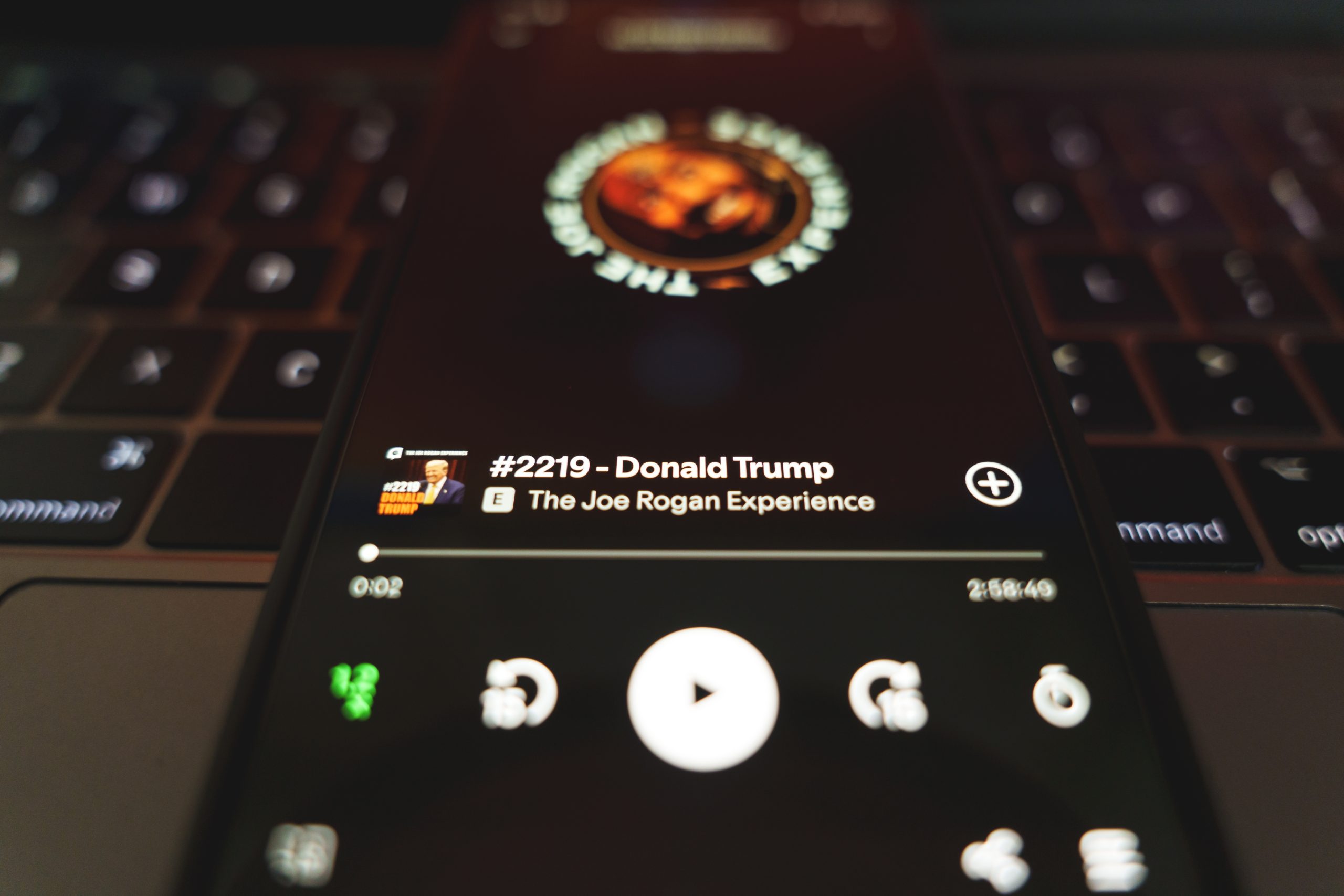The Inside Word

Disrupting political communications
The 2024 US Presidential election was the first ‘podcast election’.
The way and means in which politicians communicate their message has evolved throughout time. New technology, devices, and changes in human behaviour all alter the way political candidates interact with the public.
150 years ago, newspapers allowed candidates to spread their message beyond the location they were in at any given time. A century ago, radio built on this, providing a live platform to directly communicate to the masses. Television offered a visual component and with it saw politicians focus on imagery. The internet added another platform for traditional media, while also giving birth to social media and YouTube that increased audience reach.
Podcasts are nothing new; they’ve been around since the now defunct iPod was launched some 20 years ago. But in the 2024 US Presidential election, they became heavily utilised by Donald Trump and Kamala Harris, with both candidates appearing on multiple podcasts in a bid to reach wider audiences.
Trump appeared on numerous shows that particularly target young men, such as ‘This Past Weekend with Theo Von’, the ‘Shawn Ryan Show’ and ‘The Joe Rogan Experience’. The latter episode with Joe Rogan – the most popular podcaster in the world – received 46 million views on YouTube alone, along with millions of downloads on iTunes. While it should be noted these views weren’t restricted to the US (i.e. not everyone listening/watching was voting in the Presidential election), they do illustrate the tremendous reach podcasts can achieve.
Post-election data indicates the tactic helped Trump. He secured 56% of the male vote aged 18-29, well up on the 41% he secured for the same demographic against Joe Biden in 2020. No doubt there were other factors that contributed to his growth in support with young men, but Joe Rogan certainly played a role.
So, beyond audience numbers, what is the appeal of these sorts of podcasts to candidates running for high office? Perhaps the best way to answer that is to inverse the question – why do people listen to podcasts?
For starters, they’re a great way to enliven otherwise mundane everyday activities. You can listen to a podcast on a morning walk, on public transport, driving your car or vacuuming your house.
Shows such as Joe Rogan offer a long-form interview that allows the host and guests to explore topics in far greater depth than a 10-minute interview on CNN. For instance, Trump and Rogan spoke for three straight hours, during which they canvassed a wide array of issues.
Not only did this give Trump a platform to put forward his views, but it also brought out a very different presentational style in him. If you listen to the Rogan episode, you don’t get the brash campaign-rally-Trump hurling abuse and whipping emotions. The conversational tone of the interview would have appealed far more to any undecided voter listening than Trump’s more often seen confrontational side.
In some ways, podcasting allows politicians to deploy an age-old tactic but via a different platform. Just as a candidate may have once boosted their profile with a long-piece profile in a newspaper or magazine to demonstrate the ‘real’ them, a sit-down chew-the-fat conversation with a popular podcaster will likely become the norm.
This isn’t to say traditional media is about to go the way of the dodo and become as obsolete as the aforementioned iPod. Television, radio, and newspapers will still be used by political candidates; podcasting just offers another channel to communicate their message.
The 2008 US Presidential election that catapulted Barack Obama to the White House became known as the first social media & YouTube election. That was an historic election on several levels. Likewise, the 2024 race for the White House will likely not be forgotten by history for myriad reasons, including being the first podcast election.


